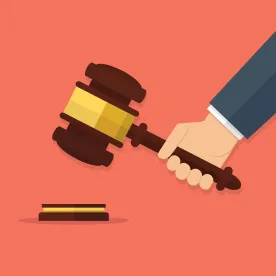Late last week, the FTC announced that it sent around 670 companies a “Notice of Penalty Offenses” on claim substantiation. Let’s start with some background.
-
Who received the notice? The list of recipients is a veritable who’s who of U.S. consumer product companies, with one household name after another identified.
-
What’s in the notice? A description of conduct – particularly in the realm of health and safety advertising – found violative in past FTC administrative cases.
-
Why is the FTC notifying companies of those cases? In theory, the FTC can obtain civil penalties if a company has notice of another’s past violation and engages in the same “such act or practice.”[1]
As you likely already know, in 2021, the FTC lost its ability to obtain monetary redress directly in federal court in non-civil penalty cases[2]. Since then, the agency has sought to “deploy[] new [enforcement] tools and reinvigorate[] old ones.”[3] This notice tactic is an old tool, being reinvigorated after many years[4].
Particularly given the cited cases, however, this notice likely isn’t all that workable against many, if not most, companies on the recipient list. That said, there is still good reason to remain aware, generally, of how aggressive the FTC has become in claim substantiation cases.
The Cases in the Notice
While the notice cites twelve prior cases, only two are from the last decade, and all involved brazen conduct and/or quite specific, and in many cases, antiquated, factual scenarios. For instance, in a 1988 case, a company was found liable for promoting a hair removal device as removing hair permanently[5]. In two other cases, each brought in the ‘90s, companies were found to have marketed anti-lock brake systems lacking anti-lock capabilities[6]. In a case the notice cites repeatedly, a company was found to have engaged in conduct like continuing to rely on a pilot study years after a larger, better-designed study showed null results[7]. Established U.S. consumer product companies simply tend to avoid comparable conduct, and many are also in starkly different industries than those at issue in the cited cases, calling into question how useful the notice might be.
Trends in Substantiation Cases
Again, though, the general trend of the FTC in substantiation cases, particularly on health-related claims, remains a serious concern. In 2009, the FTC’s Bureau of Consumer Protection announced efforts to “re-focus[] on national advertising,” meaning advertising by large, mainstream brands, and “re-examin[e]” its existing standards “regarding substantiation for advertising claims.”[8]
Since then, through both Democratic and Republican administrations, the FTC has been on a tear of focusing its enforcement away from a rather clearcut deception, to attacking scientific evidence, even in the face of reputable experts on the other side supporting the evidence. That pivot hasn’t gone very well for the agency, with it racking up three significant losses since 2013[9]. But still, those losses haven’t ended the trend of the FTC bringing “debate-over-science” cases.
Even if the new notice may not be much of an enforcement tool against your company, the notice is a good reminder to remain aware of the kinds of arguments the FTC is making in debate-over-science cases and be sure your company is staying ahead of them.
Should you need further details or any assistance, please do not hesitate to contact Katie Bond (bondk@khlaw.com) or your existing contact at Keller and Heckman LLP.
[1] See FTCA Section 5(m)(1)(B), 15 U.S.C. § 45(m)(1)(B).
[2] AMG Cap. Mgmt., LLC v. FTC, 41 S.Ct. 1341 (2021).
[3] FTC Chair Khan Testimony Before House Appropriations Subcommittee on Financial Services and General Government (May 18, 2022).
[4] See https://www.ftc.gov/enforcement/penalty-offenses (listing other notices FTC has issued).
[5] See FTC, Notice of Penalty Offenses Concerning Substantiation of Product Claims (2023) (citing Removatron Int’l Corp., 111 F.T.C. 206 (1988), aff’d, 884 F.2d 1489 (1st Cir. 1989)).
[6] See id. (citing Auto. Breakthrough Scis., Inc., 126 F.T.C. 229 (1998); Brake Guard Prods., Inc., 125 F.T.C. 138 (1998)).
[7] See id. (citing POM Wonderful, LLC, 155 F.T.C. 1 (2013), aff’d in part, 777 F.3d 478 (D.C. Cir. 2015)).
[8] David Vladeck, FTC BCP Dir., Remarks at National Advertising Division Annual Conference (Oct. 5, 2009).
[9] See United States v. Bayer Corp., No. CV 07-01(JLL), 2015 WL 5822595 (D.N.J. Sept. 24, 2015); Basic Research, LLC v. FTC, 2:09-CV-0779 CW, 2014 WL 12596497, at *13 (D. Utah Nov. 25, 2014); FTC v. Garden of Life, Inc., 516 F. App’x 852, 856 (11th Cir. 2013).




 />i
/>i
